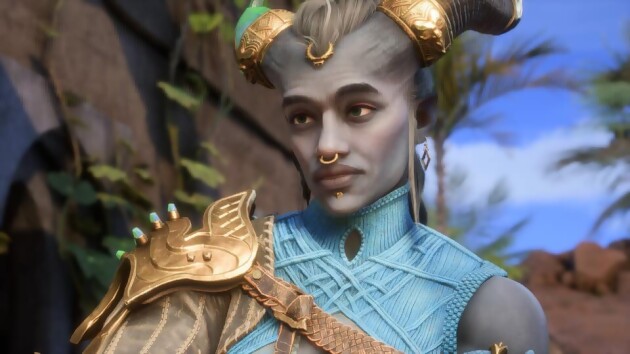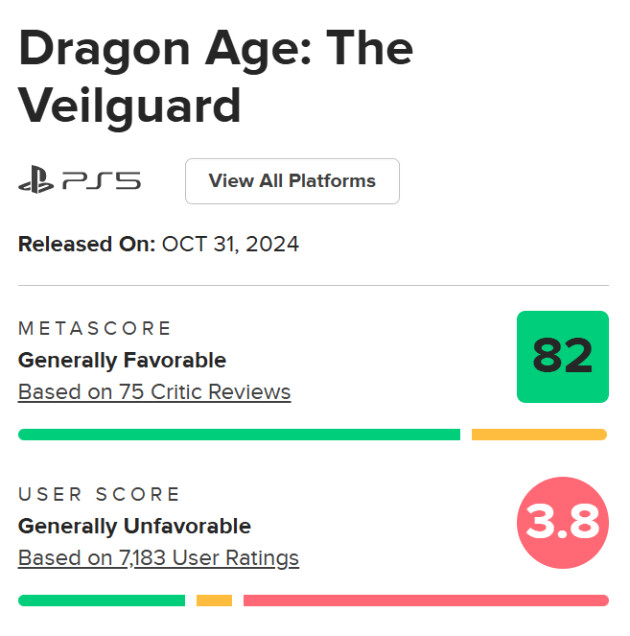“Eurogamer: How has the commercial reaction to the game been? I have read articles on sales and they seem mixed, inconclusive. The game seems to be doing well but is struggling to keep up with the pace of Inquisition before it. Is- What is success from your point of view?
Corinne Busche: There are three axes on which we can measure this: what the team was able to do and put in place – the pride they can take from it; every game that gets made, especially in the triple-A space where you’re talking about hundreds of developers, deadlines, is a miracle. The fact that they executed with quality: internally, we consider that a success.
We’re very happy with the critical reception the game has received. It’s not common to have these difficult development cycles and see a team turn around and receive the critical reception they received. In fact, in many ways, it’s the hardest path to follow. So yeah, we’re pretty proud of the critical reception.
Unfortunately, on the sales side, it’s not something we can really discuss, but of course, as we know with Inquisition, it’s been a long road to get to those total sales numbers.”
Corinne Busche therefore refuses to communicate sales figures, and according to certain analysts, Dragon Age The Veilguard has only sold 1 million copies since its release, which is obviously very insufficient for a game which required almost a decade of development. development and which would have cost the sum of 250 million dollars. From experience, when a game is a hit, publishers and studios never hesitate to communicate about it, and burying their heads in the sand is obviously a sign that sales are not very good. The latest example dates back to Star Wars Outlaws, the figures for which were also not communicated by Ubisoft disappointed by sales, and which also barely exceeded one million copies sold. But since the release of Star Wars Outlaws, a lot of things have been said, and it is now clear that the title is considered a commercial failure.
As for Bioware, it was once a flagship of Western video game studios, but in just a few years it has become a company that has had a lot of doubts about it. Between the successive failures, the numerous internal departures and this attempt to go on the slippery slope of game-services before retracting, Bioware is today a colossus with feet of clay. If Dragon Age The Veilguard has come to an end, it is not without some concessions and above all a desire to change the paradigm, with a more general public approach, even if it means alienating part of its original audience. If the game appealed to the press with an average of 82% on Metacritic, the public responded with negativity. With a user score of 3.8/10, Dragon Age The Veilguard has been attacked by two types of players, those who believe that the series has gone astray by becoming a poorly written God of War like, with a generic artistic direction and Some pretty questionable game design choices. The other fringe of dissatisfied players could not stand the pressure around DEI (Diversity, Equity, Inclusivity) which arrives like a hair in the soup with the character of Taash, transgender draconist and member of the Lords of Fortune and companion . Enough to tense up certain players who can no longer support this politicization in video games which has been increasing more and more in recent years…

